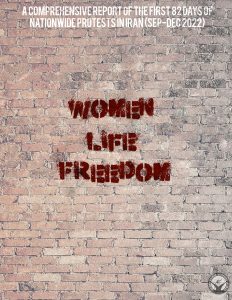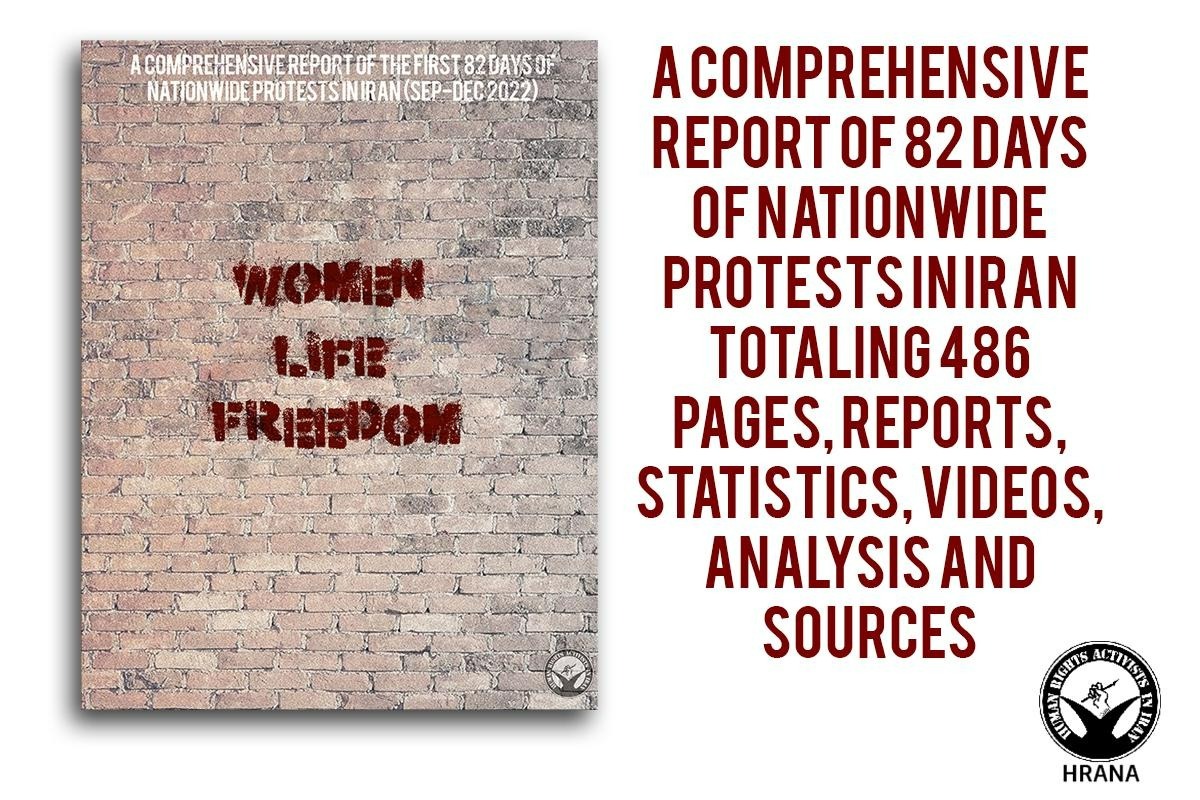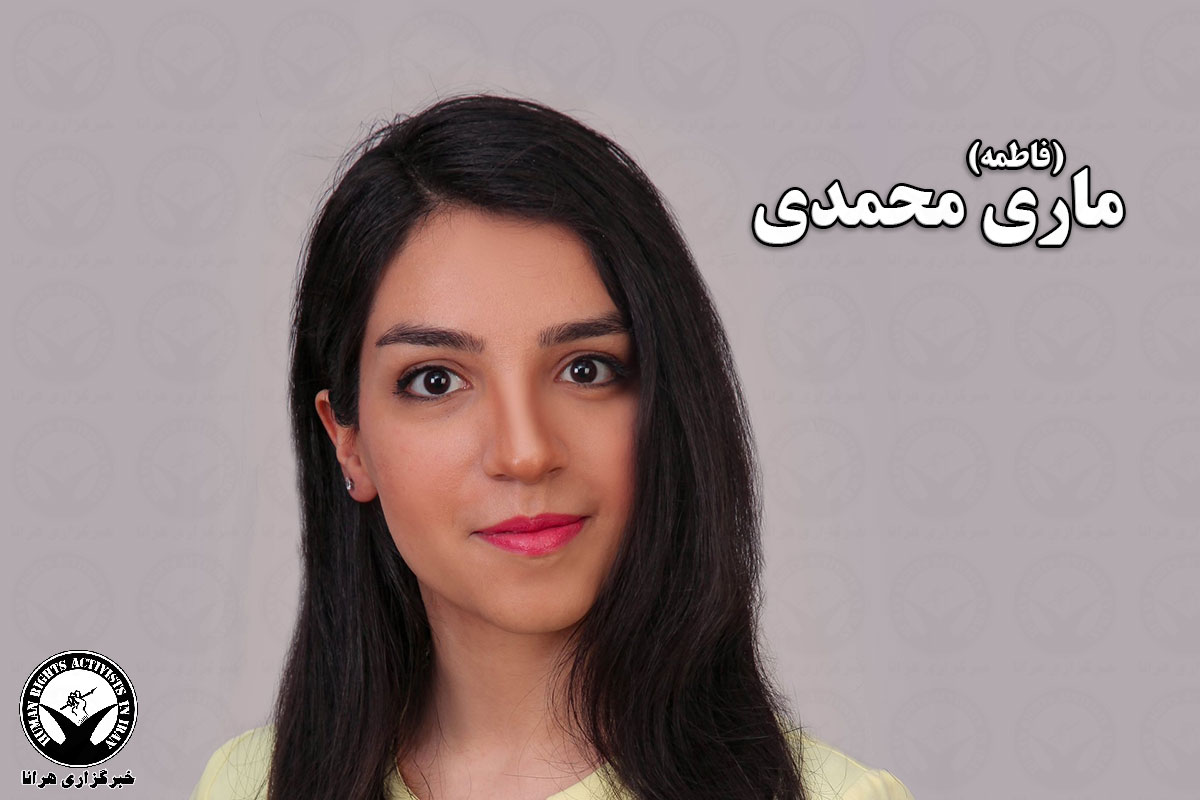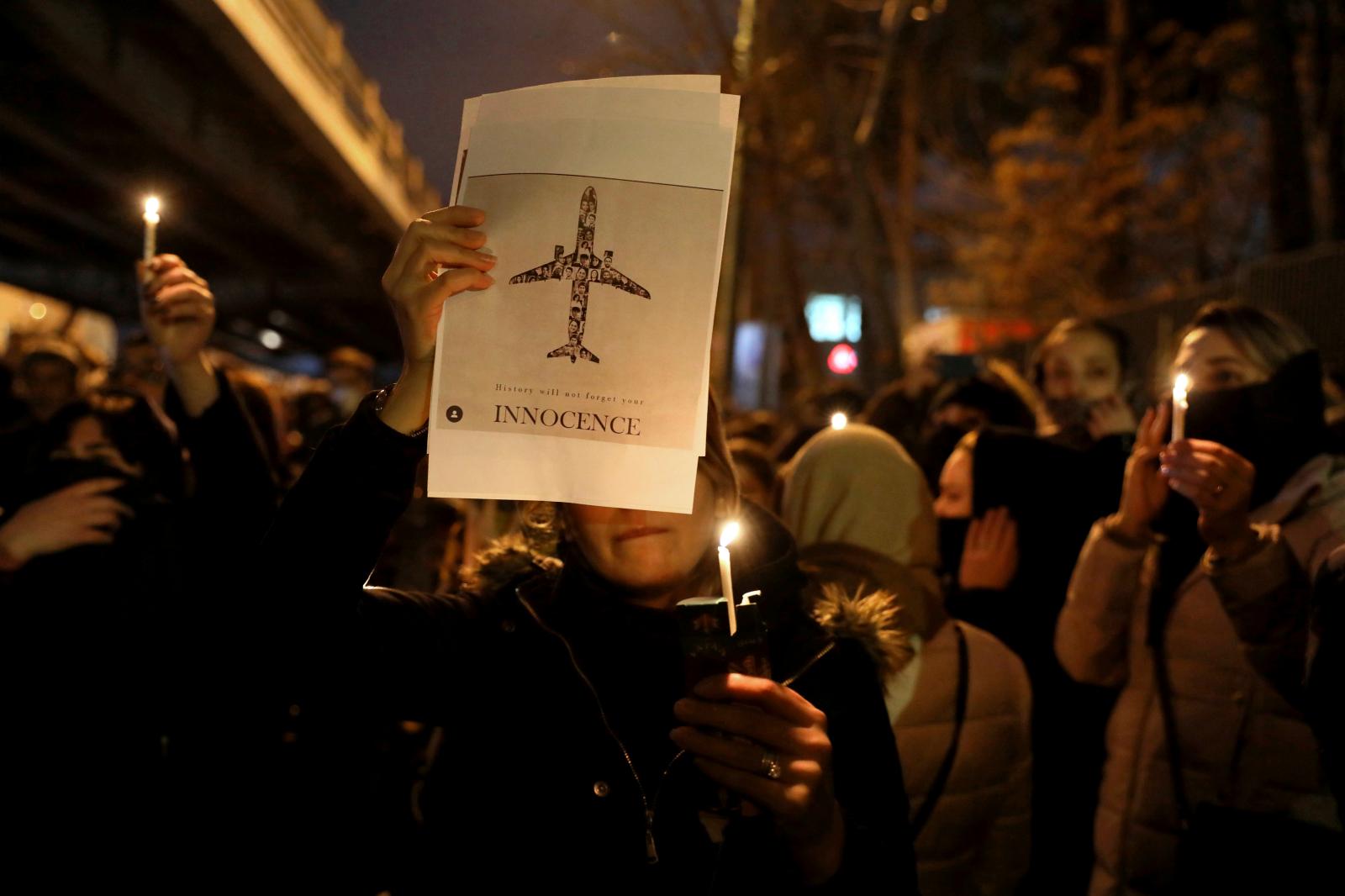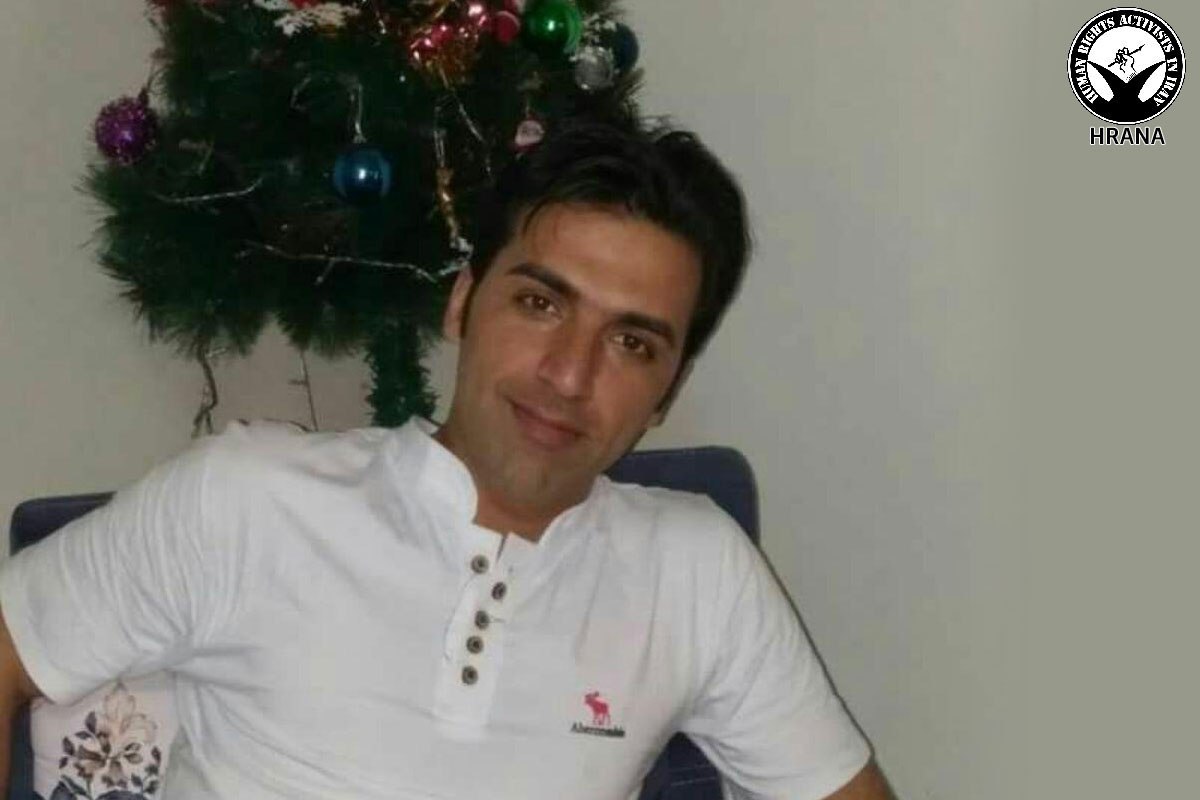On January 8, 2020, the Ukraine International Airlines flight 752 crashed shortly after takeoff from Tehran’s Imam Khomeini International Airport, killing all 176 people onboard including Iranians, Canadians, Ukrainians, Swedes, Afghans, Germans, and British nationals. On January 11, 2020, thousands of people took to the streets across the country after General Staff of the Armed Forces of the Islamic Republic of Iran officially admitted that the Islamic Revolutionary Guard Corps (IRGC) unintentionally shot down a Ukrainian airliner in Tehran. He blamed human error and US adventurism for this plane crash. HRANA has earlier published a report about the first three days of the protest.
Between January 11-14, people took to the streets in 21 cities and 21 universities:
Cities: Isfahan, Mashhad, Tabriz, Sari, Kerman, Shiraz, Amol, Babol, Gorgan, Rasht, Sanandaj, Tehran, Karaj, Semnan, Arak, Yazd, Kermanshah, Qods, Zanjan, Ahvaz, Qazvin
Universities: University of Arak, University of Damghan, University of Tehran campus of Karaj, Shahid Beheshti University, Isfahan University of Technology, Allameh Tabataba’i University, Khajeh Nasir Toosi University of Technology, Alzahra University, Iran University of Science and Technology, Babol Noshirvani University of Technology, University of Kurdistan, Bu-Ali Sina University, Razi University, Tabriz Islamic Art University, Sharif University of Technology, Tehran University of Art, Tehran University of Medical Sciences, and Tabriz University. Moreover, the demonstration inside the Amirkabir University of Technology got violent after anti-riot police fired tear gas. Witnesses reported that an unprecedented number of militia forces were among the protesters. In Tehran, protests held in Rodaki street, Jomhoori street, Ostad Moin and from Azadi square to Sadeghieh square.
The themes of the slogans used by the demonstrators in Tehran were: calling the authorities to take accountability, questioning the Islamic Revolutionary Guards Corps’ actions, and urging the resignation of the Supreme Leader and other country’s seniors. They protest the government’s coverup and chant slogans such as “Death to liars!” and “Death to the dictator!”
Forces used against protesters
Security forces, anti-riot police, and militia groups used tear gas, shooting rubber bullet, and birdshot against protestors and several protesters were injured or arrested. According to Amnesty International, security forces and Intelligence department’s agents were at hospitals and in some cases wanted to transfer the injured protesters to military hospitals. Several hospitals in Tehran did not accept injured claiming that they fear being arrested if admitting injured protesters. According to Amnesty International, a woman was sexually assaulted by militia groups. A few hours after her arrest, an agent took her to a room and forced her to perform oral sex on him and was about to rape her.
On January 12, two women were shot in foot on Azadi street in Tehran and their status is unknown. 14 people were arrested in Amol and their whereabouts is still unknown after one week.
Arrests
On January 14, Iran’s Judiciary spokesman, Gholam Hossein Esmaeili, confirmed the arrest of 30 people in the protests. He also confirmed the arrest of the British Ambassador to Iran and added that no other foreigner was arrested. The head of the security department of Iranian Police confirmed the arrest of several people suspected to be leaders of protesters who encouraged others in the cyberspace to act against the national security.
HRANA identified 20 arrested individuals during January protests:
1.Keyvan Anbari, arrested in Tabriz, on January 12
2.Mohammad Sefid Jameh, arrested in Tabriz, on January 12
3.Nima Ahmadianpour, arrested in Tabriz, on January 12
4.Moslem Soleimani (student), arrested in Kurdistan, on January 15
5.Zanyar Ahmadpour (student), arrested in Kurdistan, on January 15
6.Arshad Atabak(student), arrested in Kurdistan, on January 15
7.Majid Mehrpouri (student), arrested in Tehran, on January 12
8.Ashkan Valizadeh, arrested in front of the Razi University in Kermanshah, on January 12
9.Salah Gharibi, arrested in front of the Razi University in Kermanshah, on January 12
10.Nabi Tardast, Razi University in Kermanshah, on January 12
11.Mohammad Esmaeili, arrested in Tehran, on January 12
12.Mohammad Amin Hosseini, arrested in Gorgan, on January 12
13.Fatemeh (Mary) Mohammadi (former political prisoner), arrested in Tehran, on January 12
14.Ali Noorizad, arrested in Tabriz, on January 12
15.Shora Fekri, arrested in Amol, on January 12
16.Robert Macaire (British Ambassador to Iran), arrested in Tehran, on January 11
17.Hossein Karoubi (the son of Mehdi Karoubi), arrested in Tehran, on January 13
18.Rakhshan Banietemad (film director), arrested in Tehran, on January 13 and was released after few hours
19.Siavash Hayati, arrested in Kermanshah, on January 12 and was released on January 15
20.Masoud Hokmabadi (theater producer), arrested in Mashhad, on January 18; he announced earlier that he will not participate in Fajr Festival. According to Emtedad News, this is the reason for his arrest.
21.Ali Farmani (sound designer and producer), arrested in Shiraz (after attending a memorial ceremony for the victims of the plane crash), January 19.
Additional arrests
10 individuals were arrested by the security forces in Ilam, Sanandaj, Dehglan, Marivan, Khoy, and Kermanshah which according to Center of Democracy and Human Rights in Kurdistan, these arrests were related to their participation in protests after Iran admitted that the Islamic Revolutionary Guard Corps (IRGC) unintentionally shot down a Ukrainian airliner in Tehran
1.Amir Ali Majd was beaten and arrested by the security forces at his book store on January 18, in Ilam.
2.Arman Mohammadi was arrested by IRGC officers in Sanandaj on January 17.
3.Sirus Abbasi and his wife Farideh Veisi were arrested on January 14 at “Zanest Educational Center” by Dehgolan Intelligence Department and were transferred to Sanandaj. His brother, Azad Abbasi, who went to the Intelligence Department’s office to follow up on their case was also arrested.
4.Keyvan Kouti was arrested by the highway patrol in Sarpol Zahab and was transferred to a detention center in Kermanshah, on January 14.
5.Amanj Nikpay was arrested by the Intelligence department’s officers on January 14, His father, Khaled Nikpay, who went to the Intelligence department office to follow up on his son’s case, was arrested and released on bail after interrogation. Moreover, Mohammad Sheykh Kanlu was arrested by the IRGC officers in Khoy and was transferred to the Urmia Intelligence detention center and Saman Abdolalizadeh was arrested by the security forces in Kermanshah.
Backlashes
Several artists said that they will not participate in the Fajr Festival:
The executives and judges of the Fajr Visual Arts Festival in categories of photography, graphic art, and ceramic art and 40 cartoonists will not participate as an act of protest. In addition, the following artists and actors/actresses will not participate in the Fajr Film Festival: Masoud Kimiai, film director, Fatemeh Motamed-Arya, Afsaneh Mahiyan, Naghmeh Samini, Saeed Changizian, Shiva Fallahi, Manouchehr Shoja, Mohammadreza Jadidi, Behrouz Seifi, Maryam Deyhoul, Amir Sepehr Taghilou, Rojan Kordnejad, Mehdi Safarzadeh Khaniki, Amir Ahmad Ghazvini, Romin Mohtasham, Seifollah Samadian, Kiyarang Alaei, Shahriar Tavakoli, Mehdi Khoushki (theater director), Amin Amiri, Samaneh Zandinejad, Shirin Samadi, Nooroldin Heydari Maher, Amin Tabatabaei, Arash Dadgar, Meisam Abdi, Alireza Koushk Jalali, Naghmeh Samini, Shirin Samadi, Atila Pesyani, theater group “Quantum”, Cinemafa News Agency, theater group “Vaghti Bozorgtar Boudam”, and theater group “Parvaneh Aljarayeri”. Moreover, Shahram Lasemi, Zahra Khatami Rad, and Saba Rad announced their resignations from their posts at the state television on their Instagram pages.
Keyvan Saket, composer, and Tar player, in a note on his Instagram page, expressed his empathy for people’s protesting the shot down of Ukrainian Airline flight 752 by IRGC and announced that he will not participate in any of the Fajr Festivals. Alireza Ghorbani, an Iranian singer, canceled his concerts on January 17-18.
Voria Ghafouri, an Iranian footballer, wrote on his personal page “I am speechless about the tragedy but covering the reality was unacceptable. The people who were responsible for it should be tried. Also, people who are distributing lies on the state TV”.
Monireh Arabshahi, Nasrin Sotoudeh, and, Maryam Akbari Monfared Iranian Association of Writers for Children and Youth, and Iranian Journalist Association wrote separate announcements to denounce the plane crash and called on resignation and trial of authorities who caused this tragedy.
Lufthansa Airlines canceled its flights to Tehran till March 28, 2020. Sweden canceled Iran Air flights between Tehran to Stockholm and Gothenburg. Several other airlines changed their flight routes from Tehran and Iraq to avoid flying over the Iranian airspace.
The videoes of the January protests (first, second, third and fourth days) are available on Youtube.
